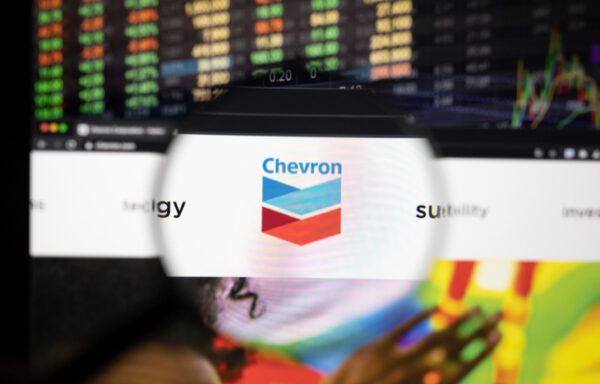4 Monthly Dividend ETFs for Income Portfolios
Monthly dividend exchange-traded funds (ETFs) can set you up with a steady stream of income. Instead of manually buying a basket of dividend stocks, all it takes is one buy order. Then month after month, you’ll collect income.
With the best dividend ETFs, the income increases over time. The companies in each fund continue to add more value to shareholders. And when buying a basket of stocks via an ETF, you benefit from instant diversification.
If one company stalls or even goes bankrupt, the others should help minimize the loss. And as already mentioned, the monthly dividend income should climb higher over the years. That’s barring a few short-term setbacks like individual company missteps and recessions.
Overall, investing in the stock market has been one of the best ways to generate long-term wealth and income. That’s why I’ve done a deep dive into thousands of investing opportunities over the last decade.
Below you’ll find a list of the top ETFs that pay monthly dividends. I’ve also highlighted some key considerations for each fund…
Top Monthly Dividend ETFs

-
Global X SuperDividend ETF (NYSE: SDIV)
Dividend Yield: 10.85%
Expense Ratio: 0.58%
Number of Holdings: 131
This fund just barely makes the six list. It has one of the highest expense ratios… but it also has a higher yield. If you’re looking for higher yield at the expense of potentially lower capital gains down the road, this could be a useful fund.
One highlight with this ETF is its global diversification. Only about a quarter of its assets are in the U.S. The next four largest country holdings are China, Hong Kong, Britain and Brazil. So if you want some global exposure in your portfolio, this could be a good investment.
The Global X SuperDividend ETF also has a high weighting in financials. It comes in close to 30% of the total weighting, followed by real estate and energy. Each of those sector weightings comes in at 26% and 11%, respectively.
-
Invesco High Yield Equity Dividend Achievers (Nasdaq: PEY)
Dividend Yield: 4.1%
Expense Ratio: 0.53%
Number of Holdings: 51
This Invesco monthly dividend ETF tracks the Nasdaq U.S. Dividend Achievers 50 Index. It’s also one of the oldest funds on this list. It dates back to 2004 and has consistently rewarded investors.
In 2010, this monthly dividend ETF paid a total of $0.35 in dividends. By 2020, total dividends for the year had climbed to $0.75. That’s some big dividend growth over 10 years, and it far outpaces inflation.
When it comes to holdings and sector allocation, about a quarter of the companies are in the utilities sector. That’s followed by financials and consumer staples with 21% and 19%, respectively. A total of 51 holdings isn’t the highest on this list, but it still provides decent diversification.
-
WisdomTree U.S. High Dividend Fund (NYSE: DHS)
Dividend Yield: 3.39%
Expense Ratio: 0.38%
Number of Holdings: 315
WisdomTree offers a wide range of funds, and this monthly dividend ETF has low fees. It has a track record going back to 2006, and overall it’s been a great monthly dividend ETF to own. Although it wasn’t always paying monthly dividends.
This fund switched over to monthly dividends in 2012. And 2013 was its first full year of paying monthly dividends. Total dividends came in at $1.76 in 2013. Over the years, the payout has climbed and came in around $2.80 in 2021. That’s some great income growth.
Although it looks like this high dividend fund is off to a lower start in 2022. And that makes sense with ongoing market volatility. But as the markets stabilize and push higher, this ETF and its income should return to growth.
-
Invesco S&P 500 High Dividend Low Volatility ETF (NYSE: SPHD)
Dividend Yield: 3.79%
Expense Ratio: 0.3%
Number of Holdings: 51
Just like the other Invesco ETF on this list, this one also has 51 holdings. Although it’s focused on minimizing volatility. It doesn’t have as high of sector concentrations.
Utilities is the highest weighting, and it comes in at 21%. The financial sector is also much smaller at 7%. That’s in contrast to the other Invesco ETF on this list, which has close to a 21% financial weighting.
This diversification and targeting also helps to lower volatility. On top of that, this fund is a bit newer with an inception date of 2012. These differences have helped keep the expense ratio lower, which is great for investors.
Living Off Monthly Dividends
ETFs that pay monthly dividends are a great way to pay living expenses. The recurring income can help provide some peace of mind.
As mentioned, you can also set up a similar portfolio by manually buying stocks, like these top monthly dividend stocks. Although the timing of income can be all over the place if buying a few of them individually. Also, there’s not as much diversification benefit.
Although either path you choose can still be rewarding. It just comes down to personal preference. And generating higher income from investing is a goal many people can obtain. In the words of dividend expert Marc Lichtenfeld…
There are lots of ways to invest your hard-earned money. But you’ll soon see why investing in dividend stocks is a conservative way to generate significant amounts of wealth and income. This isn’t theory. It’s been proven over decades of market history.
Investing in dividend-paying companies is a powerful strategy (check out our free dividend calculator). And thanks to lower barriers of entry to the stock market, anyone can get a piece of the action. Technology has helped lower trading costs, as well as certain fees associated with these funds. So you can get started with even a small amount of savings.
[adzerk-get-ad zone="245143" size="4"]




